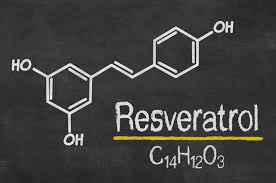Cholesterol, a fatty substance present in every cell of the body, plays a crucial role in various physiological functions. However, elevated levels of cholesterol can lead to health issues, particularly cardiovascular diseases. As a result, researchers and health enthusiasts are constantly exploring natural compounds that may help manage cholesterol levels. Resveratrol, a polyphenol found in red wine, grapes, and certain berries, has gained attention for its potential health benefits, including its supposed ability to lower cholesterol.
Resveratrol is part of a group of compounds known as polyphenols, which are naturally occurring antioxidants. Antioxidants are substances that counteract oxidative stress in the body, reducing the damage caused by free radicals. While resveratrol is most commonly associated with red wine, it is also found in various foods, such as grapes, berries, peanuts, and dark chocolate.
Several studies have investigated the impact of resveratrol on cholesterol levels, focusing on its potential to lower LDL (low-density lipoprotein) cholesterol, often referred to as "bad" cholesterol. LDL cholesterol can accumulate in the walls of blood vessels, leading to atherosclerosis and an increased risk of cardiovascular diseases. The exploration of resveratrol's effects on cholesterol is particularly intriguing due to its presence in foods and beverages that are already part of many people's diets.
One of the primary mechanisms through which resveratrol is believed to influence cholesterol levels is its ability to enhance the activity of enzymes involved in cholesterol metabolism. Research suggests that resveratrol may increase the expression and activity of liver enzymes responsible for the breakdown and excretion of cholesterol. By promoting these enzymatic processes, resveratrol may help the body eliminate excess cholesterol, preventing its accumulation in the bloodstream.
Additionally, resveratrol is thought to affect the synthesis of cholesterol by modulating the activity of key enzymes involved in cholesterol production. Some studies indicate that resveratrol may inhibit the activity of HMG-CoA reductase, an enzyme critical in the cholesterol synthesis pathway. By reducing the production of cholesterol in the liver, resveratrol could contribute to lowering overall cholesterol levels.
Moreover, resveratrol's anti-inflammatory and antioxidant properties may play a role in cholesterol management. Chronic inflammation is associated with various health conditions, including cardiovascular diseases. Resveratrol has been shown to possess anti-inflammatory effects, potentially reducing inflammation in the arteries and preventing the development of atherosclerosis. Additionally, its antioxidant properties may protect LDL cholesterol from oxidative damage, which can contribute to the formation of plaque in blood vessels.
While the existing research on resveratrol and cholesterol is promising, it's essential to acknowledge the limitations and variations in study outcomes. Some studies have reported significant reductions in LDL cholesterol levels with resveratrol supplementation, while others have shown more modest effects or none at all. Factors such as dosage, duration of supplementation, and individual variations in response may contribute to these discrepancies. Read more about does resveratrol lower cholesterol
Furthermore, the majority of research on resveratrol's effects on cholesterol has been conducted in animal models or in vitro studies, and the extrapolation of these findings to human health requires cautious interpretation. Human clinical trials are essential to establish the efficacy and safety of resveratrol supplementation in the context of cholesterol management.
Several clinical trials have been conducted to investigate the impact of resveratrol on cholesterol levels in humans. These trials vary in design, with some focusing on specific populations, such as individuals with diabetes or metabolic syndrome. The results of these trials have been mixed, with some showing modest reductions in LDL cholesterol and others finding no significant effects. It's worth noting that the diversity of study designs and participant characteristics may contribute to the conflicting findings.
It's important to highlight that while resveratrol is being explored for its potential health benefits, it is not a substitute for conventional medical treatments. Lifestyle factors such as a balanced diet, regular exercise, and medications prescribed by healthcare professionals remain crucial in managing cholesterol levels and reducing the risk of cardiovascular diseases.
In conclusion, resveratrol's potential to lower cholesterol levels is a topic of ongoing research and interest within the scientific community. The compound's ability to influence cholesterol metabolism, reduce inflammation, and act as an antioxidant makes it a promising candidate for further investigation. However, more rigorous and well-designed human clinical trials are needed to establish the effectiveness of resveratrol in cholesterol management and to determine optimal dosages for potential therapeutic benefits. Until then, individuals should approach resveratrol supplementation with caution and consult with healthcare professionals for personalized advice on managing cholesterol and overall cardiovascular health. Visit official website theultrahealthstore.com


No comments yet